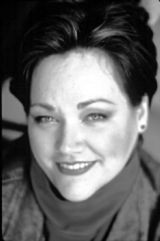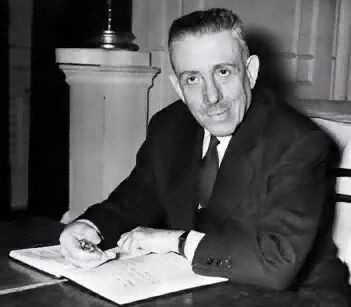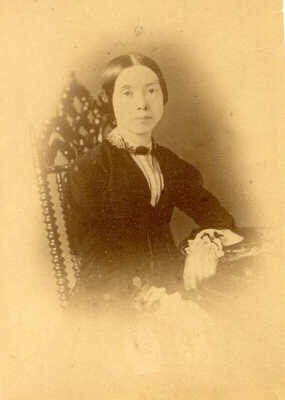Stephanie Blythe Sings at Town Hall, New York
Performs at Tanglewood on July 9
By: Susan Hall - Jun 10, 2010
Free for All Concert
Stephanie Blythe, Mezzo Soprano
Warren Jones, Piano
Francis Poulenc, Poemes de Ronsard
Henry DuParc, Three Songs
James Legg, Twelve Poems of Emily Dickinson (world premier)
John Duke, Poems of Edward Arlington Robinson
Town Hall, New York
June 6, 2010
Stephanie Blythe sang in a free for all at Town Hall on Sunday. She is a sweet, raucous, warm and above all communicative singer. The concert was sponsored by Town Hall as part of its free series, a particular treat because Blythe is worth the price of admission. She will perform in Mahler's Second Symphony at Tanglewood on JUly 9.
This season Blythe made debuts at the San Francisco Opera as Azucena and at Opera Boston in the title role of La Grande Duchesse. She returned to the Met Opera for Il Trittico and to the Seattle Opera as Mistress Quickly. She also appeared in Carnegie Hall with both the Metropolitan Opera Orchestra and the Boston Symphony Orchestra. She is an understandably sought after mezzo.
Blythe opens the Tanglewood season singing Mahler’s Second Symphony under James Levine. He has praised her “enormous gift in timbre and personality and musicianship.”
Placido Domingo agrees. Blythe's first break came when she sang at the Met, albeit offstage, in Parsifal. She sang about nine notes, but Domingo was obviously impressed. At the cast party that followed, Domingo told her, "Stephanie, when I hear how you sing at the end of the first act, I know how I must sing in the second."
Blythe was a fellow at Tanglewood in the early 1990s and came to love the recital form, its intimacy and contact with the audience — the communication, as she puts it — that is at the heart of her technique. There she met her accompanist Warren Jones. She claims she knew nothing, and he knew everything. He claims the tables have now turned. They give a wonderfully in sync laugh, which is a simple illustration of the compelling duet they perform musically.
The art song is an intimate form. Even though Blythe is a formidably large woman, she is approachable. Her hands are very active and inviting. While a singer cannot touch her instrument, she can assist it, bring it out. Singers like Blythe are indeed fortunate because they can make hand gestures that work to embrace the voice and help convey it out to the hall.
Poulenc opened the concert. It's said he was something of a monk and something of a rascal. For Poulenc the most important element of all was melody and he found his way to a vast treasury of undiscovered tunes. He knew well his strengths and limitations, writing in a letter: ‘I'm not one of those composers who have made harmonic innovations like Igor [Stravinsky], Ravel or Debussy, but I think there's room for new music which doesn't mind using other people's chords. Wasn't that the case with Mozart–Schubert?”
Over the years he constantly refined his songwriting technique to say more and more with less and less, a search for the pure line he admired so much in the painter Matisse.
As sung by Blythe, the songs were charming, and had a lilting quality later heard in the James Legg cycle.
Three Henri DuParc songs followed. He wrote only a few compositions, having not written a note for the last 48 years of his life. His songs have stood the test of time. Phidyle's long intensive sound is very demanding on vocal range, but Blythe takes the challenge. Chanson triste is about a pale love which is vulnerable.
Blythe talked about her decision to perform the Emily Dickinson poem song cycle by Legg, who had been a composition fellow at Tanglewood. Director Jack O’Brien sent her the songs at the time of the composer’s sudden death, saying Legg wanted her to have them.
The songs languished for seven years, but when the free for all concert came up, Blythe felt it was perfect for their world premier. Poulenc, DuParc and John Duke were selected because they fit with the Legg songs.
Blythe explained why we did not have the text of the Dickinson poems before us. This is about “you, the pianist, the lights are up," Ms. Blythe said. "And you can look right into your audience's eyes." Now if we were all reading the text, she could not see our eyes, soÉ The songs had the intimacy and power of Dickinson’s words.
Like Poulenc, Legg is a musicians’ poet. He perfectly well understood what poetry was and was able to translate it by inventing music that was also poetic. This intelligence was applied to the Dickinson poems.
Blythe concluded her program with three songs by composer John Duke, who was very popular in the middle of the last century and is slowly coming back into fashion. Perhaps Blythe chose him because, as he wrote, he was fascinated by the "strange and marvelous chemistry of words and music." A professor at Smith College for 44 years, Duke often articulated his theory that in a good song the words are absorbed by the music.
Duke liked to compose music to American poetry and Blythe picked songs he set to the poems of Edward Arlington Robinson. One was the bitingly ironic Richard Cory, who rich as he was, shot himself in the end. And the other, a very romantic Luke Havergal, whose name she whispered at the conclusion. "Out of a grave I come to tell you this—To tell you this."
Blythe started on the musical stage as Annie in Annie Get Your Gun, so why should it surprise that she hopes to do a concert of Kate Smith’s favorite songs soon.
Every year on her June 19th birthday she’s given a new version of an American folk song by Alan Smith. She sang as her first encore the 2009 Sweet Betsy from Pike, and dove into the phrase: “and showed her bare arse to the whole wagon train.” Yet she ended on a sad note, because both she and Jones had had a particularly difficult year. The program was dedicated to Blythe's mother and Legg.
A very special afternoon, for which we thank Town Hall, Blythe and Warren Jones for their generosity.
Town Hall's schedule in on http://the-townhall-nyc.org




